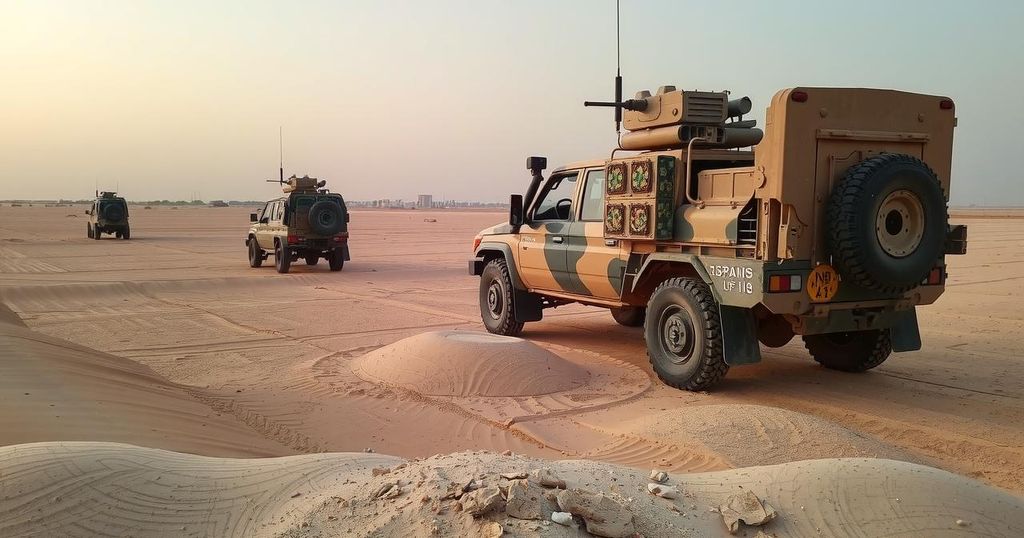Assessment of Russian Military Movements: Syria to Libya Perspectives
The article discusses the potential withdrawal of Russian military forces from Syria following the downfall of Bashar Assad’s regime. Analysts have observed troop movements that suggest relocation to Libya, raising concerns over Russia’s future military presence and its implications for NATO. Russia’s negotiations with local factions and its strategic interests in Libya could significantly impact the regional balance of power.
Recent developments in Syria following the removal of Bashar Assad’s regime have prompted speculation regarding the status of Russian military forces stationed there. Analysts have observed significant troop movements, including the dismantling of military hardware and the departure of naval vessels. Although Russian officials have denied any plans for a withdrawal and emphasized their ongoing negotiations with local paramilitary groups, the situation remains fluid and complex.
Russia’s military installations in Syria, primarily the Tartus naval base and the Hmeimim airbase, have strategic importance, serving as a counterbalance to NATO’s operations in the Mediterranean. However, the recent ascendancy of opposition factions raises questions about the sustainability of Russia’s military operations in the region. Markedly, reports of relocations of advanced weaponry to Libya indicate a potential shift in focus for Russian military resources.
The situation in Libya is equally precarious, where a standoff between rival factions underpins a fragile peace. The involvement of Russia in Libya could pose challenges to NATO, particularly if Russia establishes a more permanent military presence. The dynamics between Khalifa Haftar, who governs eastern Libya, and Russian interests will be crucial in determining future military operations and geopolitical alignments in North Africa and the Mediterranean.
The ongoing conflict in Syria has seen significant international involvement, mainly from Russia, which played a decisive role in supporting the Assad regime against various opposition factions. As the situation evolves post-Assad, Russian military strategy is under scrutiny. Their operations have historically aimed to secure influence in the region and counteract NATO’s presence. Simultaneously, Libya’s fragmented governance and ongoing power struggles create an environment where foreign military presence, particularly from Russia, could substantially affect regional stability and security dynamics.
In conclusion, the evolving scenario in Syria indicates mounting complexities for Russian military operations amidst the shifting control dynamics post-Assad. Analysts express concerns over Russia’s logistical challenges and operational sustainability in Syria, while also cautioning about the potential implications of a strengthened Russian foothold in Libya. Moving forward, the interactions between regional powers, especially in light of NATO interests, will significantly shape the geopolitical landscape of the Mediterranean and North Africa.
Original Source: www.dw.com




Post Comment